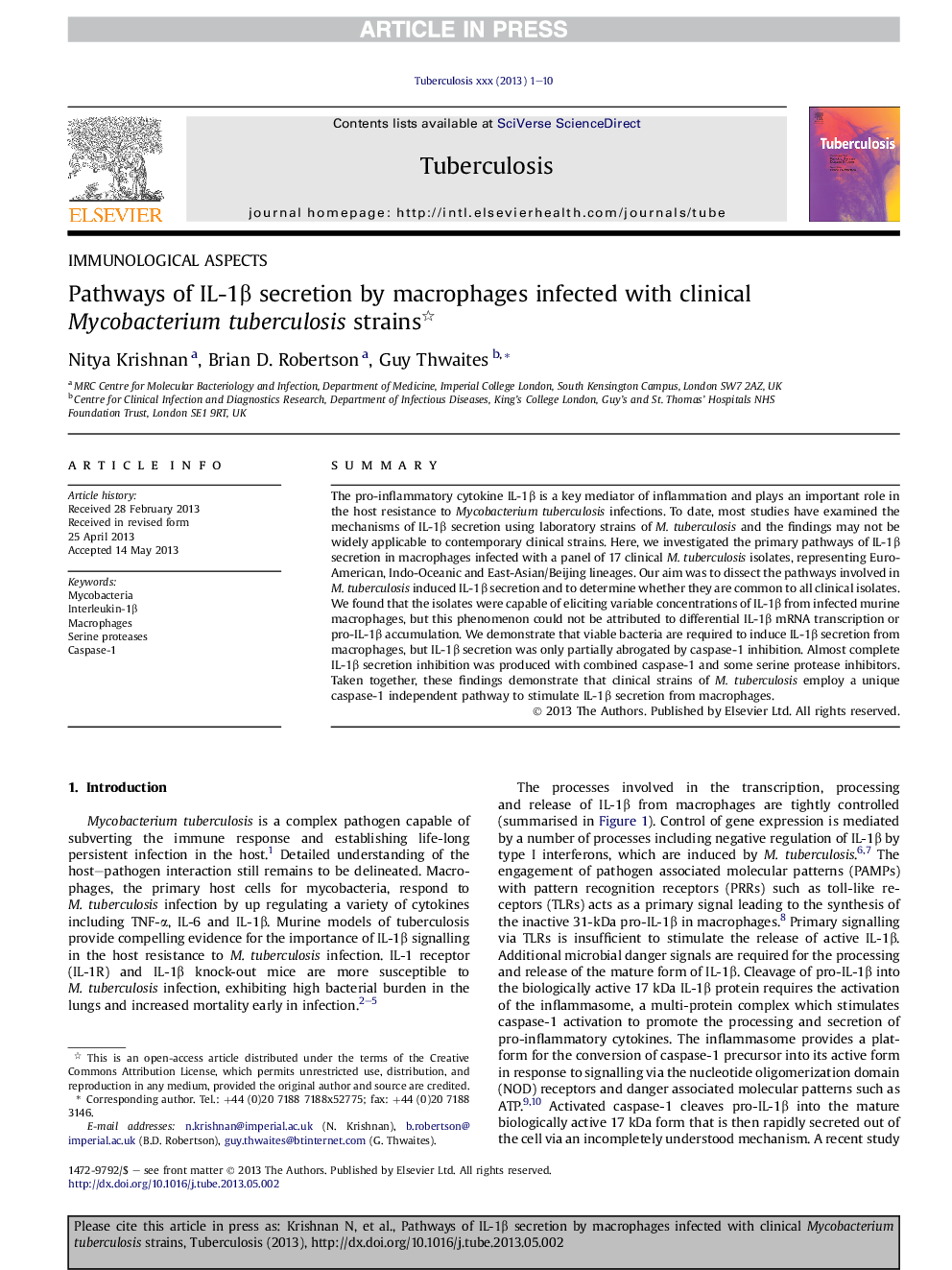| Article ID | Journal | Published Year | Pages | File Type |
|---|---|---|---|---|
| 10962226 | Tuberculosis | 2013 | 10 Pages |
Abstract
The pro-inflammatory cytokine IL-1β is a key mediator of inflammation and plays an important role in the host resistance to Mycobacterium tuberculosis infections. To date, most studies have examined the mechanisms of IL-1β secretion using laboratory strains of M. tuberculosis and the findings may not be widely applicable to contemporary clinical strains. Here, we investigated the primary pathways of IL-1β secretion in macrophages infected with a panel of 17 clinical M. tuberculosis isolates, representing Euro-American, Indo-Oceanic and East-Asian/Beijing lineages. Our aim was to dissect the pathways involved in M. tuberculosis induced IL-1β secretion and to determine whether they are common to all clinical isolates. We found that the isolates were capable of eliciting variable concentrations of IL-1β from infected murine macrophages, but this phenomenon could not be attributed to differential IL-1β mRNA transcription or pro-IL-1β accumulation. We demonstrate that viable bacteria are required to induce IL-1β secretion from macrophages, but IL-1β secretion was only partially abrogated by caspase-1 inhibition. Almost complete IL-1β secretion inhibition was produced with combined caspase-1 and some serine protease inhibitors. Taken together, these findings demonstrate that clinical strains of M. tuberculosis employ a unique caspase-1 independent pathway to stimulate IL-1β secretion from macrophages.
Related Topics
Life Sciences
Immunology and Microbiology
Applied Microbiology and Biotechnology
Authors
Nitya Krishnan, Brian D. Robertson, Guy Thwaites,
